- Home
- neetha Napew
Corridor of Storms Page 18
Corridor of Storms Read online
Page 18
“This is so.”
Startled because he had not spoken the reply, Torka saw a tall, astoundingly beautiful woman step through the ranks of the assembled magic men. Her voice had been as low and languorous as a river moving beneath the turgid warmth of the summer sun. She stood as straight as a well-made spear; like the elder, she exuded confidence and authority. Her garments were constructed of the pelts of birds: a black and white cloak made entirely of the flight feathers of the great condor like tera torn fell over her shoulders, and a circle of snow-white swan’s down crowned her head. The thick, intricately plaited forelock that fell gracefully over one shoulder to her waist was gray, and there were long streaks of silver in the remainder of her loose, knee-length hair. When she smiled, little fans appeared at the corners of her eyes, betraying the fact that the days of her youth lay far behind her, but her teeth were still strong and straight and white between lips as soft and full as a young girl’s.
“There are many kinds of magic,” she said, speaking to Torka but looking directly at Karana, as if puzzled to see in a stranger someone she had known before.
The youth blushed red under her glance.
Torka was stunned not only by her beauty but by her easy assumption of equality with the males among whom she had seemingly taken a dominant role. Beside her the supreme elder bristled. “Sondahr honors us with her insight,” he said, sneering.
Her head went up. “Sondahr thanks Lorak for his words of confidence,” she replied evenly, returning sarcasm for sarcasm as, not without difficulty, she forced her eyes from Karana. She observed Torka and the wolflike, blue-eyed dog that stood between him and the youth. Aar cocked his head.
Her eyes moved past him to the people of Torka and Zinkh. Showing no fear of the dogs that stood as sentinels beside Aliga, Sondahr regally swept out of the ranks of the magic men and walked to where the sick woman lay upon her sledge.
When Sister Dog lowered her grizzled head and growled, the woman merely looked at her and the dog relaxed, allowing her to come near, watching as she drew the furs away from Aliga. She touched her belly and her brow, breathed in the scent of her breath, then turned back to Torka, her troubled eyes seeing no one else.
For a long moment she said nothing, then: “Torka has not come to the Great Gathering to hunt the mammoth. He will not eat of the meat of great tusked ones. He has come to seek healing for this woman.” She spoke casually, as though it were the most natural thing in the world for her to know the reasons behind the stranger’s arrival. “Come, Man Who Walks With Dogs. Bring this tattooed woman to the fire of Sondahr. I will do for her what I can.”
As Pomm glowered resentfully beside Lonit, Aliga stared at the magic woman out of eyes filmed pink by fever. “You are not Navahk.”
“No,” assented Sondahr obliquely, her eyes straying to where Karana stood gaping at her as though he had never seen a woman before. “That man is not in this camp.”
Lonit was so relieved by Sondahr’s revelation about the magic man, she forgot to be jealous of her. Pomm, however, was jealous enough for the. two of them. One of Zinkh’s burliest hunters took up the burden of Aliga’s sledge, and Karana followed Sondahr like a moonstruck shadow. With the strong little headman happily basking in Torka’s reflected glory, Lorak and the magic man led Torka and his people through the mammoth bones and into the encampment of the Great Gathering.
Terrified of the dogs, children stopped in the middle of their games while the adults cleared a path, murmuring, pointing, and whispering in awe.
Torka’s band passed innumerable pit huts and crude lean tos of bones and hide and thatch before which small groups were gathered at various tasks and games. A twosome of half-grown girls tossed a toddler high; the little one flew up, laughing ecstatically, his pudgy arms and legs akimbo as he fell and was caught in a tightly held skin. The girls snapped the skin so hard that it cracked the air as the toddler again flew upward, giggling and shrieking. This time when they caught the little one, the girls saw the strangers and their dogs. The girls put the skin down, and the toddler peered out of it, as incredulous as his playmates.
Lonit smiled at them as she passed. In her arms Summer Moon stared wide eyed, amazed by the sight of so many children and as dazzled as her mother by the many cooking fires, row upon row of drying frames, the aromas of food, and the presence of so many diverse people. For a moment Lonit half expected lana to cast off her lethargy and speak delightedly about the many happy, noisy children. But the sad-eyed woman walked on as before, in silence, with Demmi asleep upon her back.
Lorak spoke as he walked, naming the various bands and headmen, their attributes and shortcomings. He complained of a season of poor hunting, explaining that this was why so many were assembled at the Great Gathering.
“In lean times many come into this country, forgetting that they are eaters of bison, caribou, and the grass-eating game that they say is sweet of meat and blood. They say that mammoth meat is strong with the taste of spruce, bad meat, except in lean times.” He deliberately let Torka know that he held those with no preference for mammoth meat in disdain. “It is from the meat of the great tusked ones that true men draw their strength,” he said, eyeing Torka sideways to see his reaction.
Torka smiled at Lorak’s obvious baiting. He would not give him the satisfaction of rising to it. Faces were looking toward them from countless fires. He was aware of the dogs slinking under the burden of their packs as they walked with tails tucked, sensing the fear and potential hostility. A boy suddenly leaped from the sidelines to touch one of the larger pups—to prove his bravery and to assure himself that he was not seeing things. With a shriek he fell back as the pup leaped straight into the air, snarling and puncturing the boy’s offending finger with a well-placed canine before Torka’s single command brought the animal into line with its siblings.
“Forbidden!” Torka echoed the dog’s snarls to the boy who had shrunk back, looking much like a startled pup himself as he sucked his injury. “These be spirit dogs!” shouted Zinkh, emphasizing Torka’s warning to all within earshot. “Only Torka’s people and Zinkh’s people may walk as brothers and sisters with these dogs! All others stay away from the magic dogs of Torka!”
Torka rolled his eyes. Zinkh, obviously enjoying his newfound, much-elevated status, was making the best of a good thing.
Lorak looked with misgivings at the dogs but said nothing. He led the newcomers on, pausing at the base of a sparsely populated rise of tundral earth amid a broad clearing, upwind of the latrines. “There. Ahead in that place may Man Who Walks With Dogs build his fire and raise his pit huts,” he commanded.
“Great honor!” cried Zinkh, grinning at Torka with obsequious adoration. “This be Hill of Dreams! Best place in camp. Rain comes, it runs off into other men’s camps! Wind blows, it carries flies and stink of offal pits away. A place of shamans!”
“But not for you!” Lorak added with relish. “This man has seen Zinkh and his people at his camp before. No magic walks with you!” He looked again at Torka with wariness. “But by Zinkh’s words, Man Who Walks With Dogs is a shaman, so he and his women and son must camp in this place. Zinkh and the rest of this band, you may camp wherever you can find a spot!”
Torka saw Zinkh wilt with disappointment, and he resented the way the little man had been deliberately demeaned by the supreme elder. “Zinkh and the rest of this band, they are Torka’s people now,” he protested. “We will make one camp together. We will camp here.”
“Come,” urged Sondahr. “Bring the tattooed woman to me upon the Hill of Dreams. Others will help your women and son to raise your camp.” She pointed to the hunter who had been carrying the sick woman’s sledge. “You will stay here. Her man will come with her—only her man.”
Torka obeyed. Slinging off his traveling pack, he lifted Aliga gently from the sledge and carried her as he walked with the magic woman onto the Hill of Dreams, past several small conical, hide-covered huts, and one larger one that was completely covered with
the black and white feathers of teratorns. He assumed that this was her hut and paused, but she looked back at him over her shoulder and shook her head, smiling.
“That is Lorak’s place of dreams. If the wind is right, perhaps someday it will fly away and take him with it.” She continued on.
He followed, marveling at the wondrous views that the hill afforded: He could see for miles in all directions, across the teeming encampment to the vast, river-veined, lake-pocked land that lay beyond. He could see the glistening, northernmost edge of the Mountains That Walk and followed their towering blue-white splendor east and south until distance shrank them into insignificance. Had he not walked there, into the land of grass that lay between them, he would have thought them to be not mountains at all but clouds piling high into the sky. Briefly he thought of the Valley of Songs, of the sweet, warm pools where he had laughed and loved with Lonit. A pang of longing struck him.
He turned his eyes away and, hefting Aliga’s weight, drew his thoughts out of the past and looked westward to closer, craggier, deeply cleft ranges of stone that formed the horizon of the world of men—a world where his women and children were safe at last within the protective circle of another band . where he would find healing for Aliga. He stared into those dark and spruce-shadowed canyons. Soon mammoths would come to them, along with other game that sought refuge from the savage winter storms that whipped across the tundral grasslands. With Aar and the other dogs he would hunt with his spear hurler and show the people of this encampment what his kind of magic could do—a magic of practical inventiveness that had nothing to do with smoke or dreams.
“Come.” Sondahr beckoned to him.
He walked on.
At the summit of the hill was a great long house built entirely of mammoth bones and tusks. The bleached and polished skulls of two massively tusked bulls sat on the ground at either side of a high, arching entryway made of two upright tusks braced at the base by stabilizing bones. The tips of these tusks were lashed together by a lacing of intricate thong work while four tusks extended out from the two skulls on the ground formed a walkway. Sondahr skirted it and continued on, at the crest of the hill, where she stopped beside a small mound covered by the shaggy, weather-darkened red hide of a mammoth. She bade Torka enter through an arching entryway composed of a single unusually curved tusk.
Torka stooped as he entered. The dark interior was redolent of a well-banked fire in which wormwood had been recently burned.
“Torka may place his woman here.”
He paused, squinting until his eyes gradually adjusted to the dark interior. He saw that the walls of the mounded hut were composed of mammoth ribs. The central fire pit was ringed not by stones or turf but by the grinding teeth of mammoths. Similar teeth formed the under structure of the hut. The pallet was also covered with shaggy red mammoth hide. He crossed the little room and gently placed the barely conscious Aliga onto the pallet.
Sondahr removed her cloak and brow circlet. She knelt, pressing her cheek, ear, and open palm against Aliga’s belly. Her hand moved, questing, then lay still. Her eyes closed.
Torka frowned. The magic woman seemed to be sleeping. Then she exhaled and spoke as though out of her dreams.
“How long has this woman been with this child?”
“Too long.”
“I can feel no life in her beside her own heartbeat and breath.”
“Aliga feels it.”
“Your woman longs to feel it, and so, perhaps, she does. It will take
time for me to tell.” She sighed again and rose to her feet in one
graceful unfolding of limbs and torso. “You will leave her with me for
the passing of a day or more? To rest, to drink strengthening brews,
to—“
“For as long as you need to bring forth the child.”
“There may be no child.”
He was stunned.
She saw his reaction and stepped close, guiding him out of the hut. Together they stood in the sun, yet as she spoke, Torka went cold. “There is no form, nothing I could feel within her belly. None.”
“But she has felt it move! Many times.”
“She has never borne a child and so feels what her soul has need of feeling. It is Spirit Sucker that lives in your woman’s belly, Torka. It is draining her of life as it feeds upon her. I have seen it before. There is no healing for it. But she is lucky; she has a man who cares enough for her to keep what I now tell him a secret and who has brought her to live her last days among other women. That will be good medicine for her. It is what she has wanted. Until the end she need not know what is to come. No one need know except Torka, so that until the end a caring man will hunt for her and hold her in his arms at the moment when her spirit leaves her body to walk upon the wind forever. That is more than most women will ever know.”
He turned away, wanting to hear no more. He would have left the hill, but she lay her hand upon his forearm and caused him to face her again. “You are no shaman,” she said quietly.
“Zinkh has said it, not I.”
“You have not denied it.”
“As you have said, there are many kinds of magic.”
“The youth who walks at your side, he can work them all. He is not your son?”
He heard a question in her voice, and fear. “He is my son,” he said, meaning it; no son of his flesh could mean more to him.
Her hand moved quickly to touch his loins. “Not the son of this!”
He slapped her hand away. “You assume too much, Sondahr.”
A look of terrible sadness moved across her incomparably beautiful face. “I assume nothing, Torka! I know. As the birds rise from the waters at summer’s end and fly into the face of the rising sun, as the game moves eastward into that same sun as night grows to feed upon the day, I know when winter is coming—before the hunters know it, before the geese and the swans know it, before the spirits of the sky and storm and cloud know it! The winter I see and foretell is not a season, Torka; it is a winter of the spirit, a cold, clouded remembrance of things that have happened and will happen. And for this knowledge there is no healing—none. Like your woman, there is no help for me.”
“Rhino!”
One word and the hunt was on. From every hut and shelter within the encampment, men and youths took up their spears and ran eagerly toward danger.
“Now we show them what magic is, yes?” asked Zinkh as Torka came down from the Hill of Dreams to find his camp already nearly set up. He nodded, pleased to see that Zinkh and his men had dug the ground for their pit huts as well as for his own. Lonit, lana, the other women, and children were busy gouging trenches to assure that rain would be channeled away from their shelters and into pools from which they would be able to draw fresh drinking water. He smiled to see Summer Moon doing her best to help the others, while Lonit overlooked the fact that the child was succeeding mainly in scattering soil all over herself.
Nearby, a sullen, dreamy-eyed Karana had the dogs under control, which was no easy task because, until the cry of “rhino” had gone up, every youth in the camp was hunkering in the vicinity, trying to learn by what magic the dogs obeyed the commands of a human being. Now, in their enthusiasm for the hunt, they had vanished as quickly as flies before an early summer gale, and Karana was left looking at Torka with the strangest expression on his face. Torka had seen it before, on the faces of other men, but never before upon Karana’s: jealousy. But of what?
“Where is Aliga?” Lonit asked.
Torka frowned. The same jealousy was upon her face. What was the matter with them? “She will stay with the magic woman for a few days. The woman says that she has brews that will ease her.”
“Bah!” retorted Pomm, then flushed and pretended to be wiping gnats from her nose when she realized that, in her jealousy of the magic woman, she had unintentionally challenged a man.
“She is wise and beautiful,” Karana breathed, as though he were making a litany to the spirits.
; Torka’s smile returned now that he understood. “I thought that Karana had no use for girls?”
“That is no girl! She is the most beautiful woman in the world!”
“She may well be that,” conceded Torka, taking such pleasure in seeing the love struck look on the boy’s face that he failed to note the expression of abject misery that transformed Lonit’s features.
“Come! We hunt now!” Zinkh had his spears in hand and his fellow hunters at his back. “Look, even old Lorak walks out of camp with his spears—not that he can use them. Wait till he sees what Torka can do with his spear hurler, then he will know what magic truly is!”
They went out across the land like wolves, a great pack of howling men and youths, with the dogs running point as though they were directing the hunt. The old woolly rhino heard them long before its small, dull eyes saw them circling through the frost-toughened sedges of the bog in which it had been chomping berries—leaves, branches, and all. Its horned head went up; its ears swiveled; water and muck from the bog bottom dripped from its sloppy lips. Broken leaves dangled from its jaws, and the blue-black blood of its vegetarian feast stained its snout.
The first spear went wide, as did the second and the third; but each served to alert the animal to impending danger. Short-tempered and incautious, it huffed several times, adjusted its great, shaggy weight, and charged.
As panic-stricken men and youths went rushing past him toward the rhino, Torka held his position on a rise just beyond the bog, appalled and angered by the raucous, totally undisciplined, flagrantly careless manner of the hunt. Now, with one of his spears positioned in his spear hurler and the others easily accessible, aligned upright across his back in his spear carrier, he stood prepared to escape from the assault of the dangerous beast, which should have been stalked in silence. If the

 Zero City
Zero City Freedom Omnibus
Freedom Omnibus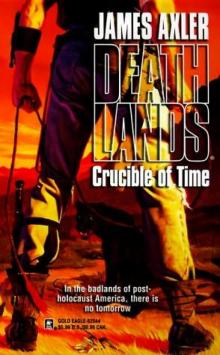 ACrucible of Time
ACrucible of Time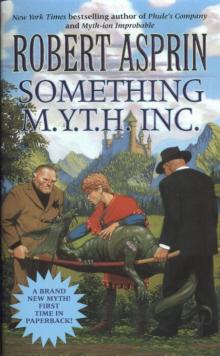 Something MYTH Inc
Something MYTH Inc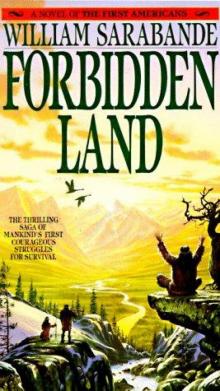 Forbidden Land
Forbidden Land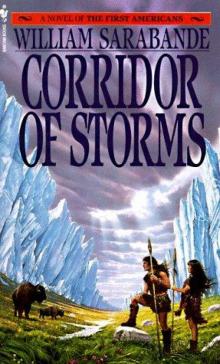 Corridor of Storms
Corridor of Storms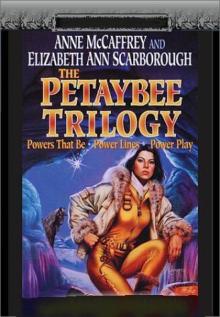 The Peytabee Omnibus
The Peytabee Omnibus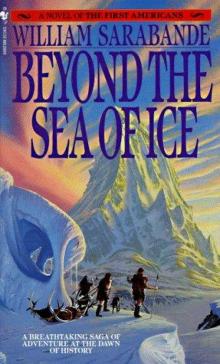 Beyond the Sea of Ice
Beyond the Sea of Ice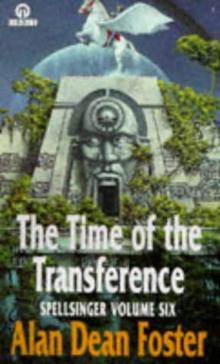 The Time Of The Transferance
The Time Of The Transferance EarthBlood
EarthBlood The Lexal Affair
The Lexal Affair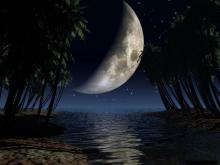 The Web
The Web Slave Ship
Slave Ship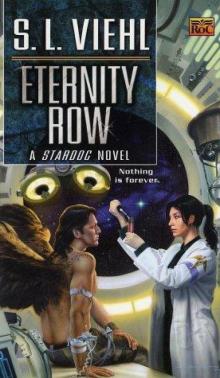 Eternity Row
Eternity Row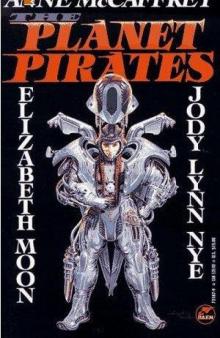 Planet Pirates Omnibus
Planet Pirates Omnibus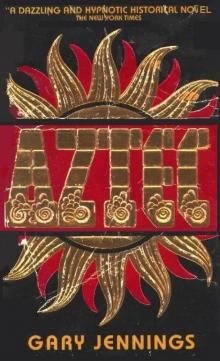 Aztec
Aztec The Awakening
The Awakening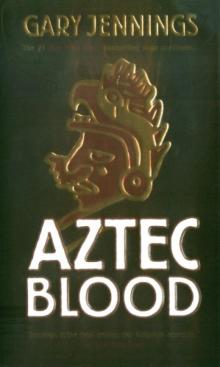 Aztec Blood
Aztec Blood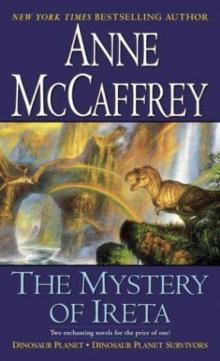 The Mystery of Ireta Omnibus
The Mystery of Ireta Omnibus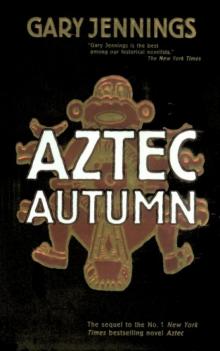 Aztec Autumn
Aztec Autumn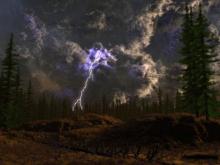 The Savage Horde
The Savage Horde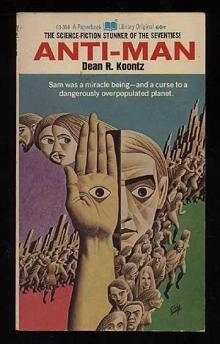 Anti - Man
Anti - Man Deep Trek
Deep Trek Starfall
Starfall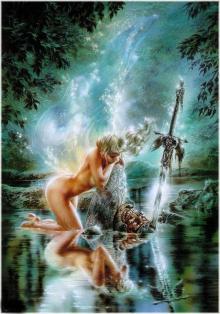 The Paths Of The Perambulator
The Paths Of The Perambulator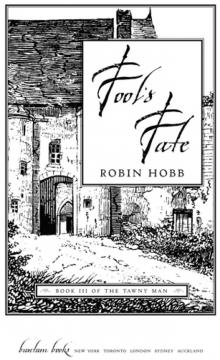 Fool's Fate
Fool's Fate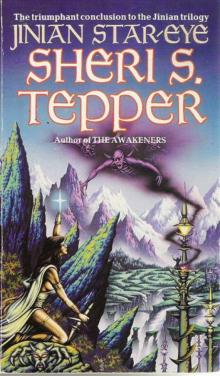 Jinian Stareye
Jinian Stareye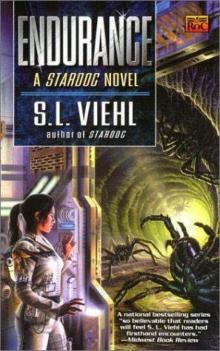 Endurance
Endurance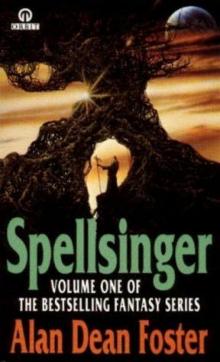 Spellsinger
Spellsinger Hybrids
Hybrids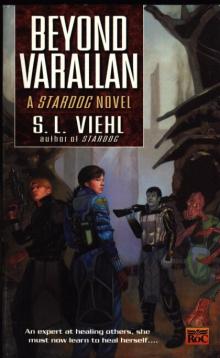 Beyond Varallan
Beyond Varallan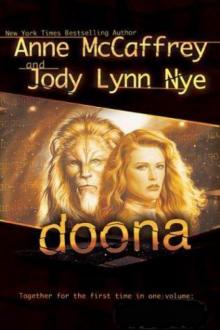 Doona Trilogy Omnibus
Doona Trilogy Omnibus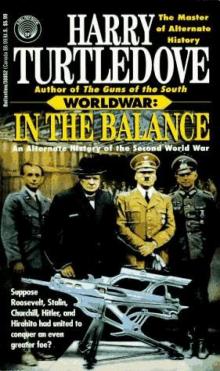 In th Balance
In th Balance Planerbound
Planerbound The Nightmare begins
The Nightmare begins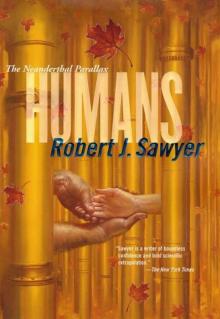 Humans
Humans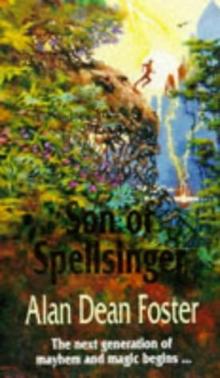 Son Of Spellsinger
Son Of Spellsinger